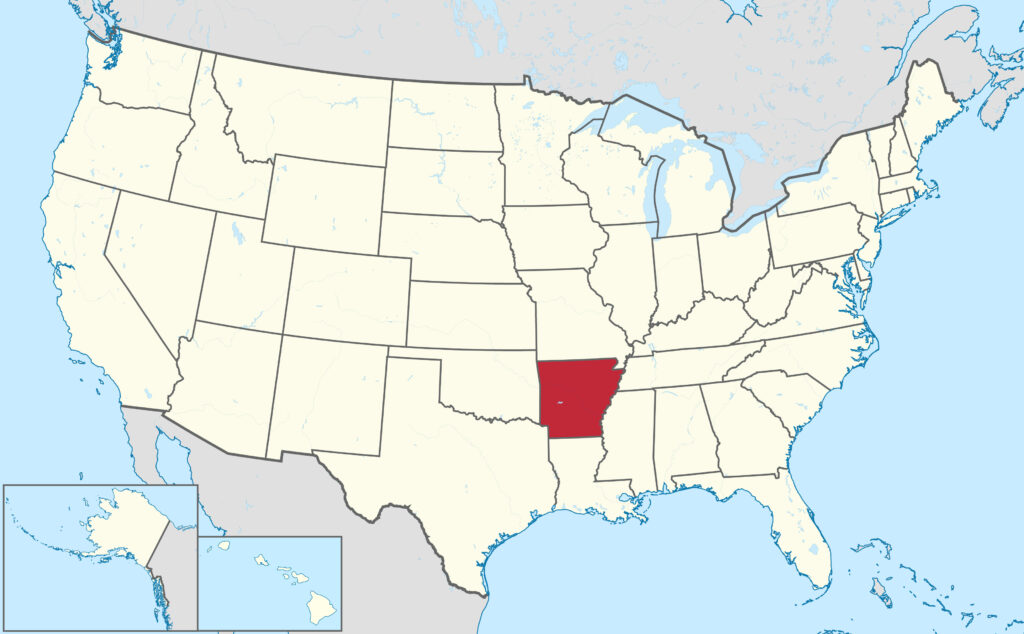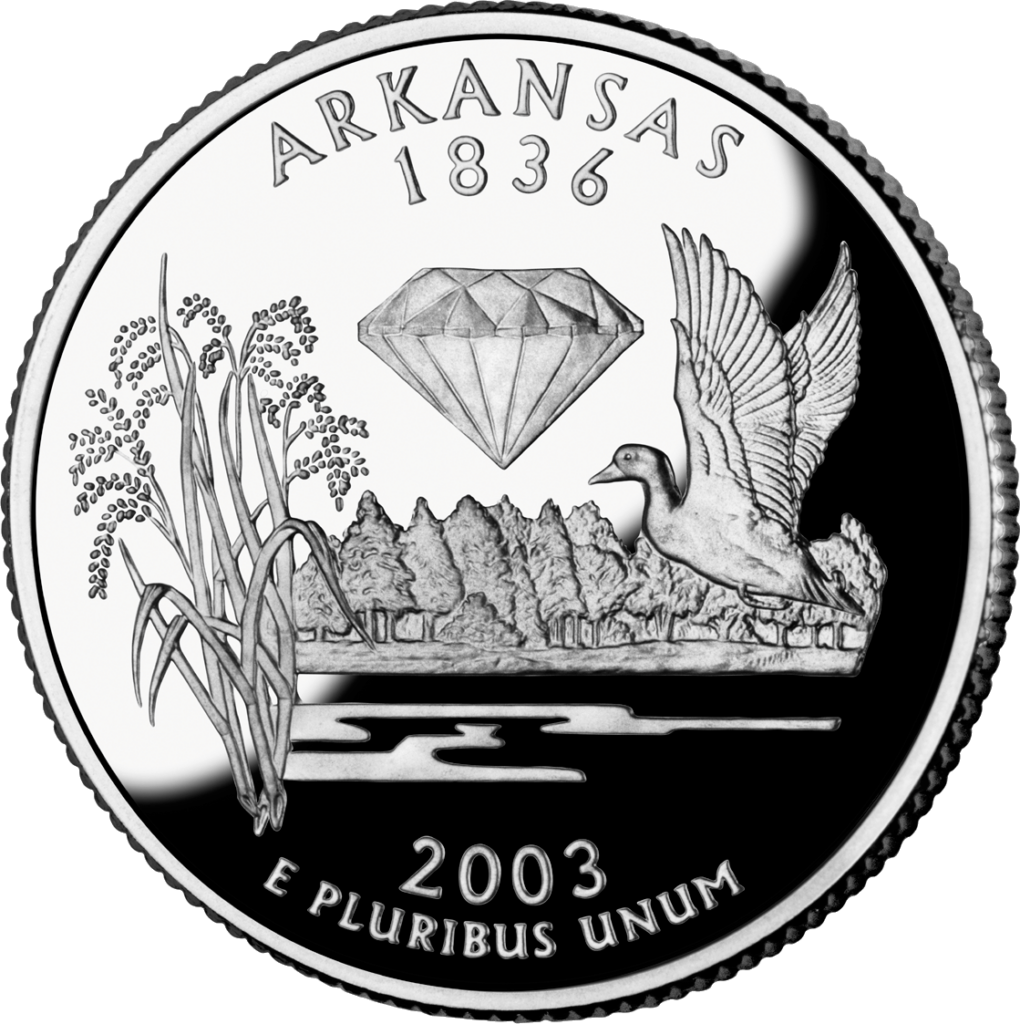Arkansas, known as “The Natural State,” is a land of scenic beauty, rich history, and vibrant culture. Located in the southern United States, Arkansas offers a diverse landscape of mountains, forests, rivers, and lakes. It’s a state known for its outdoor recreational opportunities, as well as its significant contributions to American history, from the early days of exploration and settlement to the Civil Rights Movement. Arkansas has produced notable figures such as President Bill Clinton and has a deep heritage shaped by Native American, European, and African American influences. This article explores Arkansas’s geography, history, cultural contributions, and its evolving role in the modern United States.
Geography and Climate
Arkansas is bordered by Missouri to the north, Tennessee and Mississippi to the east, Louisiana to the south, and Texas and Oklahoma to the west. Known for its natural beauty, Arkansas is home to various landscapes that range from the Ozark and Ouachita Mountains to the fertile plains of the Mississippi Delta.
- The Ozark Mountains and Ouachita Mountains
The Ozark Mountains, in the northern part of the state, are characterized by rolling hills, limestone bluffs, and dense forests. This region is popular for hiking, fishing, and camping, and it draws many outdoor enthusiasts. The Ouachita Mountains, to the southwest, are known for their mineral-rich hot springs, most famously in Hot Springs National Park, which has been a wellness destination for centuries. - The Arkansas River
One of the major rivers in the United States, the Arkansas River flows from Colorado through Kansas, Oklahoma, and into Arkansas before joining the Mississippi River. This river has played a significant role in Arkansas’s development, providing water resources, transportation, and recreational opportunities. - The Mississippi Delta
In the eastern part of Arkansas lies the Mississippi Delta, a flat, fertile area known for its agricultural productivity. This region has been central to the state’s economy, supporting crops like rice, soybeans, and cotton. The Delta is also known for its cultural contributions, particularly to the development of blues music. - Climate
Arkansas has a humid subtropical climate, with hot, humid summers and mild winters. The state experiences abundant rainfall, especially in the spring and summer, supporting its lush forests and agriculture. Arkansas is also prone to severe weather, including thunderstorms and tornadoes, particularly in spring.
Early History and Native American Heritage
- Native American Tribes
Before European settlers arrived, Arkansas was home to various Native American tribes, including the Quapaw, Osage, and Caddo. These tribes lived off the land, hunting, fishing, and cultivating crops. The name “Arkansas” itself comes from the Quapaw word “akakaze,” which means “land of downriver people.” Arkansas’s Native American heritage is celebrated through cultural events, archaeological sites, and historical markers across the state. - European Exploration
The first Europeans to explore Arkansas were Spanish explorers, including Hernando de Soto, who journeyed through the region in the 16th century. French explorers, such as Jacques Marquette and Louis Jolliet, later ventured into Arkansas in the late 17th century, establishing trade relationships with Native Americans. The French influence remains in the names of rivers, towns, and regions across the state. - French and Spanish Control
Arkansas became part of the French territory of Louisiana, and in 1763, it was ceded to Spain. However, the area was later returned to France before being sold to the United States in 1803 as part of the Louisiana Purchase, which opened Arkansas to American settlers and expansion.
Becoming a State
Arkansas’s path to statehood was shaped by westward expansion and the movement of settlers into the region.
- Territorial Days
After the Louisiana Purchase, Arkansas became part of the Missouri Territory. In 1819, it became its own territory, and settlers, primarily from the southern United States, moved into the area, bringing with them enslaved labor and the plantation economy. The fertile soil of the Mississippi Delta region proved ideal for cotton cultivation, which became the backbone of Arkansas’s economy. - Statehood in 1836
Arkansas was admitted to the Union as the 25th state on June 15, 1836. It entered as a slave state, with slavery being integral to its economy, particularly in the Delta region. The state’s entry into the Union reflected the growing sectional tensions between the North and the South, as Arkansas aligned itself culturally and economically with the southern states.
The Civil War and Reconstruction
Arkansas’s involvement in the Civil War and its subsequent Reconstruction period had a lasting impact on its social and economic landscape.
- Secession and the Civil War
Arkansas seceded from the Union on May 6, 1861, and joined the Confederate States of America. The state saw significant military action during the war, including battles at Pea Ridge and Prairie Grove, which were crucial for control over the region. The war devastated Arkansas’s economy and infrastructure, and the end of slavery brought significant changes to its society. - Reconstruction Era
Following the Civil War, Arkansas faced a challenging Reconstruction period. The abolition of slavery led to economic difficulties for former plantation owners, while formerly enslaved African Americans sought new opportunities and rights. The Reconstruction era in Arkansas was marked by political turmoil, social tension, and efforts to rebuild the state’s economy and infrastructure.
The 20th Century: Economic Development and Social Change
The 20th century brought significant changes to Arkansas as it transitioned from an agricultural economy to a more diversified industrial base.
- Agriculture and Industry
While agriculture remained essential to Arkansas’s economy, particularly in the Delta region, the state began to develop other industries. Timber became a valuable resource, and companies invested in lumber mills and paper production. The discovery of natural gas, coal, and bauxite (the ore used to produce aluminum) further diversified the state’s economy, providing jobs and contributing to urban growth. - The Rise of Little Rock
Little Rock, the state capital, grew into Arkansas’s largest city and economic hub. The city attracted businesses, cultural institutions, and educational facilities, becoming the center of political and social life in the state. Little Rock’s growth symbolized Arkansas’s shift towards modernization and economic progress. - The Civil Rights Movement
Arkansas played a significant role in the Civil Rights Movement, particularly in the 1957 desegregation crisis at Little Rock Central High School. When nine African American students, known as the Little Rock Nine, attempted to attend the previously all-white school, they faced violent opposition. President Dwight D. Eisenhower intervened, sending federal troops to enforce integration. This event became a landmark moment in the fight for civil rights and highlighted Arkansas’s complex social dynamics.
Modern Arkansas: Economy, Culture, and Tourism
Today, Arkansas is a state that balances its agricultural heritage with a growing industrial and service economy. It is also known for its outdoor recreational opportunities and cultural contributions.
- Economy and Major Industries
Agriculture remains important in Arkansas, with the state being one of the leading producers of rice, poultry, and soybeans. Additionally, Arkansas is home to several large corporations, including Walmart, headquartered in Bentonville, which has become the world’s largest retailer. Tyson Foods, a major player in the poultry industry, is also based in Arkansas, contributing to the state’s economic growth. - Tourism and Natural Attractions
Known as “The Natural State,” Arkansas is famous for its natural beauty. Hot Springs National Park, the Buffalo National River, and the Ozark and Ouachita National Forests attract outdoor enthusiasts from around the country. Activities like hiking, fishing, and boating are popular, and the state’s fall foliage and crystal-clear lakes offer breathtaking scenery. - Cultural Highlights
Arkansas’s culture reflects its southern roots, Native American heritage, and contributions to music, literature, and art. The Delta region, in particular, has a rich musical legacy and is considered one of the birthplaces of blues music. The state also hosts various festivals, including the Arkansas Folk Festival, King Biscuit Blues Festival, and the Delta Cultural Festival, which celebrate its heritage.
Notable Figures from Arkansas
- Bill Clinton
Arkansas’s most famous son, Bill Clinton, served as the 42nd President of the United States. Born in Hope, Arkansas, Clinton was Governor of Arkansas before becoming President. His political career and achievements have left a lasting impact on the state and the nation. - Johnny Cash
The legendary country musician Johnny Cash was born in Kingsland, Arkansas. Known for his deep, distinctive voice and songs about life’s struggles, Cash became a cultural icon, and his legacy continues to influence music worldwide. - Maya Angelou
Celebrated poet, writer, and civil rights activist Maya Angelou spent part of her childhood in Stamps, Arkansas. Her works, including I Know Why the Caged Bird Sings, have inspired generations and contributed to American literature and social justice. - Sam Walton
The founder of Walmart, Sam Walton, established his first store in Arkansas. Walmart has since grown into a global retail giant, transforming Bentonville into a thriving business hub and contributing to Arkansas’s economy.
Arkansas is a state with a rich history, diverse landscapes, and a unique cultural identity. From the Ozark Mountains to the Delta, its natural beauty has earned it the nickname “The Natural State.” With a heritage shaped by Native American culture, European exploration, and the Civil Rights Movement, Arkansas’s story reflects the broader history of the American South. Known for its warm hospitality, scenic attractions, and notable figures like Bill Clinton and Johnny Cash, Arkansas continues to be a place of beauty, tradition, and resilience in the United States.




